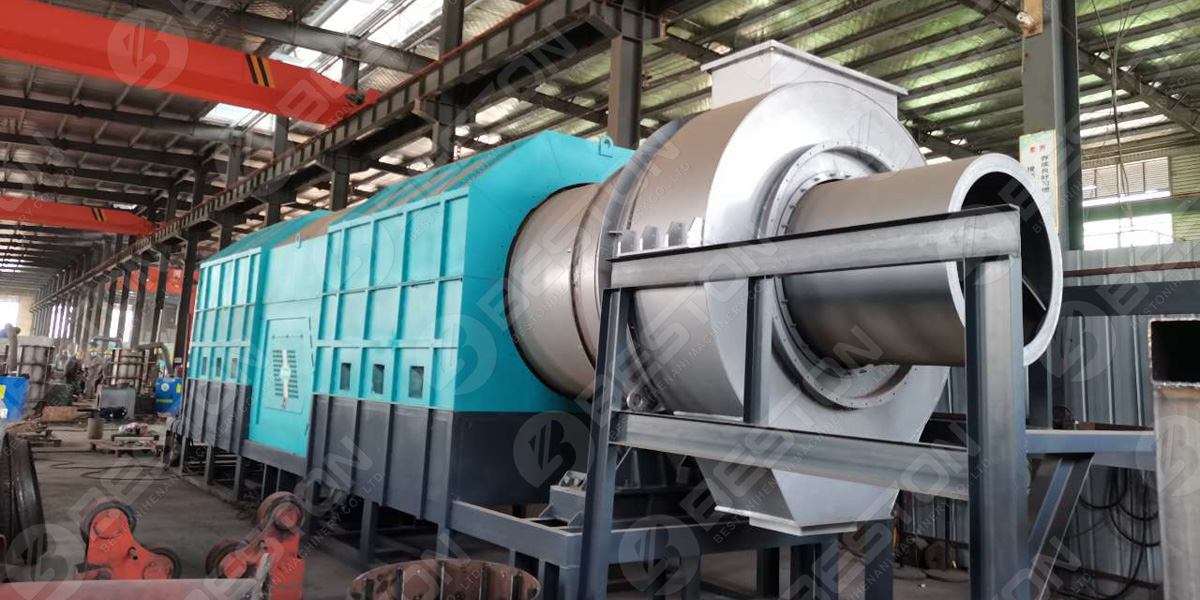In the ever-evolving landscape of sustainable practices, the integration of advanced technologies has become paramount. A noteworthy solution gaining prominence in large-scale coconut shell recycling is the implementation of state-of-the-art charcoal making machines. These sophisticated systems not only redefine waste management but also pave the way for a more environmentally conscious and resource-efficient future.
Understanding the Dynamics of Coconut Shell Recycling
The Coconut Shell Conundrum
Coconut shells, often considered waste in various industries, possess immense potential for resource recovery. Traditionally overlooked, these shells can be a rich source of raw material for the production of high-quality charcoal, unlocking a circular economy approach.
Challenges in Traditional Methods
Historically, the processing of coconut shells into charcoal has been a labor-intensive and inefficient endeavor. Conventional methods often involve prolonged open-air burning, leading to significant energy loss and adverse environmental impacts.
Introducing Charcoal Making Machines
Technological Marvels at a Glance
The charcoal making machine represents a paradigm shift in coconut shell recycling. These advanced systems leverage pyrolysis, a controlled decomposition process in the absence of oxygen, to convert coconut shells into charcoal efficiently.
Operational Precision
The intricacy of the pyrolysis process within these machines ensures precise temperature control, optimizing the conversion of coconut shells into high-grade charcoal. The closed-loop system minimizes energy wastage, enhancing both operational efficiency and environmental sustainability.
Key Features of Charcoal Making Machines
1. Batch and Continuous Processing:
- Charcoal making machines offer the flexibility of batch processing or continuous operation, catering to diverse industrial needs. This adaptability makes them suitable for both small-scale and large-scale coconut shell recycling operations.
2. Gas Recycling System:
- The incorporation of a gas recycling system is a distinctive feature. Gases generated during the pyrolysis process are recycled within the system, contributing to reduced emissions and heightened eco-friendliness.
3. High Carbonization Efficiency:
- These machines boast high carbonization efficiency, ensuring maximum utilization of coconut shells. The end result is a substantial yield of charcoal from each batch, optimizing resource recovery.
4. Automated Controls:
- Equipped with automated controls, charcoal making machines minimize the need for manual intervention. This not only enhances safety but also streamlines the production process, making it more efficient and cost-effective.

The Economic Viability of Coconut Shell Charcoal Production
1. Resource Monetization:
- Large-scale coconut shell recycling through charcoal making machines transforms what was once considered waste into a valuable resource. The resulting charcoal can be monetized, creating a potential revenue stream.
2. Cost-Efficient Operations:
- While the initial investment in these machines may seem substantial, their long-term economic viability becomes evident. Reduced labor costs, efficient energy utilization, and the creation of valuable end products contribute to a cost-effective operation.
Environmental Impacts and Sustainability
1. Emission Reduction:
- The closed-loop system and gas recycling features significantly reduce emissions associated with coconut shell processing. This eco-friendly approach aligns with global efforts to mitigate climate change.
2. Circular Economy Contribution:
- Large-scale coconut shell recycling through coconut shell charcoal making machine embodies the principles of a circular economy. It not only prevents waste but also fosters resource recovery and reuse, minimizing the environmental footprint.
Case Studies: Realizing Success in Practice
1. Industrial Adoption:
- Numerous industries have embraced the use of charcoal making machines for large-scale coconut shell recycling. From agriculture to metallurgy, these machines find applications in diverse sectors, showcasing their versatility.
2. Positive Environmental Impact:
- Case studies highlight the positive environmental impact of transitioning from traditional coconut shell disposal methods to advanced charcoal making machines. Reduced emissions, efficient resource utilization, and economic benefits are common threads in success stories.
Conclusion: A Sustainable Tomorrow
As we navigate the complexities of waste management and sustainable practices, the integration of charcoal making machines into large-scale coconut shell recycling emerges as a beacon of innovation. Beyond the financial advantages, these machines contribute significantly to environmental conservation and the realization of a circular economy. The journey from coconut shells to high-quality charcoal exemplifies how technology, when harnessed thoughtfully, can redefine our approach to waste and resource utilization, shaping a sustainable tomorrow.

Comments
No comments yet. Be the first to react!